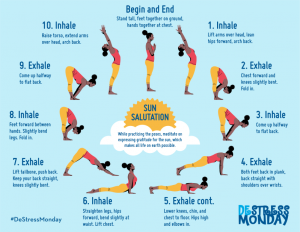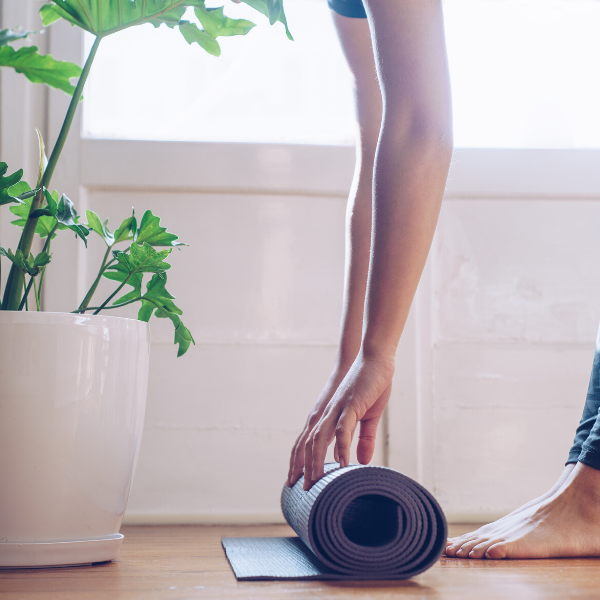Yoga: A beginner’s perspective
Coming to University challenged me in an unexpected way. I didn’t know that academic work would create a feeling of “there’s always more you can do.” I found it hard to detach from this worry. This was intensified by trying to maintain my wellbeing, friends and cope with the steep learning curve of independent living. These feelings gathered, leaving little space for the present moment. My mind was constantly thinking ahead or ruminating over past mistakes. I felt trapped inside myself and needed a way through it to stay at University, reduce stress and feel more calm.
The benefits of yoga
For me the chance to be present came when I discovered yoga. It was a great way to make social connections at University after long isolated working days at the Ali G (and take advantage of the cheaper classes!). Yoga also helped me when I was stuck in my own thoughts. People can make certain assumptions of more spiritual methods of self-care, so I want to share my experience from a beginner’s perspective and why I think anyone can benefit from it.
It’s all about the breath
Yoga practice varies a lot in speed and difficulty, so if one style doesn’t suit it is easy to find another which does. The main principle in any class focuses around aligning the in breath and out breath with movement and maintaining poses. When breathing out in a position, this allows you to deepen your stretch, or provides strength when moving between positions. So keeping the correct timing of the breath is essential. This keeps you focused, as does the balance required. As soon as you lose focus, this is shown as you may lose your balance or struggle to do positions if your breath is not in sync. Constant attention is needed and your thoughts slip away. Yoga also makes you aware of your body in a way I haven’t experienced in any other hobby. It allows you to notice muscle tensions and relax them, helping you to let go of the past and de-stress.
The everyday benefits
You leave the class with a quieter mind and the exercise leaves you energised. The practice can be taken into the rest of your day by taking notice of how easily your attention is split when performing tasks, distracted by thoughts or your phone. You can become more fully engaged in activities and have more control over your mind – rather than letting it control you with worries.

Not for you?
If this still doesn’t sound like it is for you, try something that requires the same attention physically. Such as doing another sport, or art. For me the physical aspect is important as these activities don’t leave room for your mind to wander. If you’d like to try some yoga, have a look at this graphic and give it a go!
Whatever you choose, good luck!
Written by Student Wellbeing Champion, Suzie Davies.

